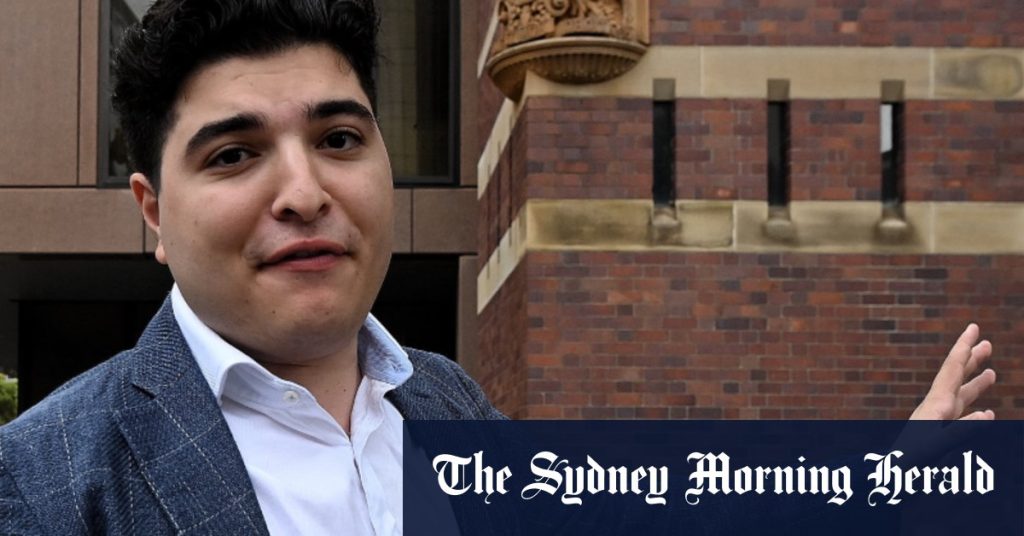Activist Drew Pavlou was found guilty in a Brisbane court for failing to obtain consent for a regulated activity and not complying with a direction to cease from an authorised person. He had displayed placards near a Chinese consulate about the Tiananmen Square massacre, which led to a fine of $1000 plus additional costs. Pavlou appealed the decision, but his appeal was dismissed by Brisbane District Court Judge Paul Smith, who found that the council’s laws were “reasonable and proportionate.”
The issue at hand was whether Pavlou’s placards constituted “advertising matter” according to the council’s laws. Pavlou had set up a table and displayed signs near the entrance to the Queen Street Mall and Chinese consulate in May 2022. The signs read, “Nothing happened on June 4, 1989, change my mind,” in reference to the violent end of a protest by China’s military and the government’s censorship of the massacre. When Pavlou failed to comply with a council officer’s instructions to remove the placards, he was issued an infringement notice.
Despite Pavlou’s argument that his freedom of speech was being restricted, Judge Smith found that the council’s laws were indeed reasonable and proportionate in this case. Pavlou’s display of placards near the Chinese consulate was seen as unauthorised advertising in the mall, leading to the fine and costs imposed by the magistrate. While Pavlou may have believed he had a right to express his views on the Tiananmen Square massacre, the court determined that he had failed to comply with the council’s regulations.
Pavlou’s case raises questions about the balance between freedom of speech and the regulation of public spaces. While individuals have a right to express their opinions, there are also laws in place to maintain order and prevent unauthorized activities in certain areas. In this instance, Pavlou’s display of placards near the Chinese consulate was deemed to be in violation of the council’s regulations, resulting in the fine and costs imposed by the court.
The verdict in Pavlou’s case highlights the importance of understanding and complying with local laws and regulations when engaging in public demonstrations or displays. While activists like Pavlou may have strong convictions and a desire to raise awareness about important issues, they must do so within the confines of the law. In this case, Pavlou’s failure to obtain consent for his activity and comply with the council’s instructions led to legal consequences, underscoring the need for activists to be mindful of the relevant rules and regulations in their advocacy efforts.
Ultimately, Pavlou’s case serves as a reminder of the complexities involved in balancing freedom of speech with the need for public order and compliance with regulations. While individuals have a right to express their views, they must also be aware of the legal boundaries that govern public spaces and activities. By understanding and respecting these laws, activists can effectively advocate for their causes while avoiding potential legal consequences.













